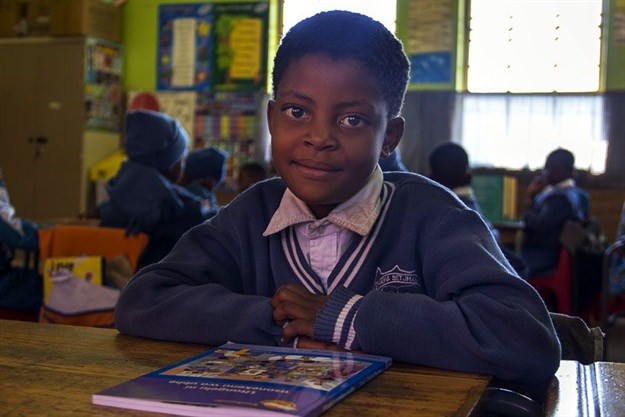International Mother Language Day (IMLD) is celebrated on 21 February each year with the overall aim of promoting linguistic diversity and multilingual education. This year, the day will be framed by the International Year of Indigenous Languages 2019, so the IMLD theme is: "Indigenous languages matter for development, peace building and reconciliation."
The Molteno Institute for Language and Literacy strongly believes that mother tongue education needs to be reinforced and developed for at least six years, or more, of formal schooling with English being taught as a subject for effective literacy attainment, for the development of English as a second language and for academic success to be achieved.
In South Africa, children are taught in their mother tongue for the first three years of their formal education (Grades 1 to 3) before they begin learning in English in Grade 4. According to Masennya Dikotla, the CEO of the Molteno Institute for Language and Literacy, it takes six to eight years to learn a second language well enough for it to be used as a medium of instruction. So, it is ineffective for learners to make the transition from learning in their mother tongue to learning in English after only three years as it happens in South Africa.
“If a change in the medium of instruction happens before the learners have developed a high level of written and spoken proficiency in both their first and second language, then the learning process throughout the curriculum will be interrupted and frustrated,” he says. “The development of the level of literacy necessary for reading and writing about science, history and geography as well as other subjects, or understanding problems in mathematics, becomes more difficult from Grade 4 onwards.
“This is the case for children throughout the world who learn in their mother tongue. It is so much harder for children who are expected to learn subjects in a language they barely know.”
South Africa was placed last out of 50 countries in the recently released Progress in International Reading Literacy Study (PIRLS). The study found that 8 out of 10 Grade 4 learners cannot read for meaning. Tragically, most of the learners who performed badly in the PIRLS study wrote their tests in their mother language – the language they had been taught from Grades 1 to 3. Making children learn in English in Grade 4 when they haven’t even mastered reading and writing in their own mother tongue really compounds the problem.
“Language education models that remove the mother tongue as a primary medium of instruction before Grade 4 or 5 will facilitate little success for the majority of learners,” says Masennya. “However, those that retain the mother tongue as a primary medium of instruction with English being taught as a subject for at least six years can succeed under well-resourced conditions in Africa.”
Research shows that the longer a child can learn reading, writing and their academic content in their mother tongue, while learning a second language (in our case English), the better the chances of them succeeding when they begin learning in the second language in high school.
In a large-scale study, researchers found a direct correlation between the amount and duration of mother-tongue instruction and learners’ average percentile rank on national standardised tests after 11 years of schooling (Thomas & Collier, 1997). The African learners who received the most mother-tongue instruction in primary school performed best on standardised tests in high school in the national language (English).
To ensure quality teaching and learning takes place in the mother tongue, it is important to develop new educational resources to facilitate education in African languages and enhance the ability of teachers to teach in their mother tongue. The greatest commitment needs to be placed on ensuring educators are effectively trained to teach an African language and through an African language.
Parents also need to be informed that children best learn reading, writing and academic content when they learn in a language they understand, and that children who learn to read and write in the language they know best - their mother tongue - can learn to write in the second language better and faster.
Mother-tongue education for at least six years - and not three - will considerably increase the return on investment in education, contribute to knowledge creation and reduce our high levels of poverty, inequality and unemployment.















































